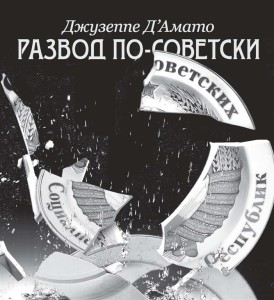CIS
Gineva Statement on Ukraine
17 Apr 2014Representatives of the European Union, the United States, Ukraine and the Russian Federation issued today the following statement:
“The Geneva meeting on the situation in Ukraine agreed on Initial concrete steps to de-escalate tensions and restore security for all citizens. All sides must refrain from any violence, intimidation or provocative actions. The participants strongly condemned and rejected all expressions of extremism, racism and religious intolerance, including anti–semitism. All illegal armed groups must be disarmed; all illegally seized buildings must be returned to legitimate owners; all illegally occupied streets, squares and other public places in Ukrainian cities and towns must be vacated.
Amnesty will be granted to protestors and to those who have left buildings and other public places and surrendered weapons, with the exception of those found guilty of capital crimes. It was agreed that the OSCE Special Monitoring Mission should play a leading role in assisting Ukrainian authorities and local communities in the immediate implementation of these de-escalation measures wherever they are needed most, beginning in the coming days.
The US, EU and Russia commit to support this mission, including by providing monitors. The announced constitutional process will be inclusive, transparent and accountable. It will include the immediate establishment of a broad national dialogue, with outreach to all of Ukraine’s regions and political constituencies, and allow for the consideration of public comments and proposed amendments. The participants underlined the importance of economic and financial stability in Ukraine and would be ready to discuss additional support as the above steps are implemented.”
The unofficial Crimean Tatars parliament voted in favor of seeking “national and territorial autonomy” following Crimea’s secession from Ukraine and annexation by Russia two weeks ago.
Crimean Tatars’ assembly leader Refat Chubarov told more than 200 delegates: “In the life of every nation there comes a time when it must make decisions that will determine its future.”
“I ask you to approve … the start of political and legal procedures aimed at creating ethnic and territorial autonomy of the Crimean Tatars of their historic territory of Crimea.”
The assembly also voted in favor of his proposal, made in the Crimean Tatars historic capital of Bakhchisaray. Chubarov said he expected both Kiev and Moscow to react to the decision to seek autonomy.
Refat Chubarov announced plans to negotiate with both Russia and Ukraine, as well as with the UN, European Council, EU, OSCE and the Organization of Islamic Cooperation.
Chubarov explained that the Crimean Tatars have studied Russia’s constitution and are aware of the regional laws governing subjects within the Russian Federation, and thus have decided to demand the right to self-determination.
Present at the assembly were the head of Russia’s Council of Muftis Ravil Gaynutdin and Rustam Minnikhanov, the president of Russia’s republic of Tatarstan. Both have guaranteed to help Crimean Tatars leaders meet and negotiate with authorities in Moscow.
The Russian and Ukrainian governments have voiced their support for the Crimean Tatars.
Reuters, Itar-Tass, Interfax
Crisi di Crimea: Dove va l’Ucraina.
23 Mar 2014Dalla crisi in Crimea nasce il Vecchio Continente del 21esimo secolo: l’Ucraina di fatto entra in Ue e lo “scenario morbido” del post crollo dell’Urss, con le repubbliche ex sovietiche unite nella Csi, viene abbandonato.
Siamo di fronte non solo ad un brusco cambiamento degli equilibri geostrategici, imperanti negli ultimi due decenni, ma anche allo sgretolamento del mondo slavo orientale.
Dopo 360 anni di storia comune il divorzio dell’Ucraina con la Russia è ormai consumato e lo “Stato fuori dai blocchi, ponte tra Est ed Ovest”, voluto dal deposto presidente Viktor Janukovich, è un ricordo sbiadito. 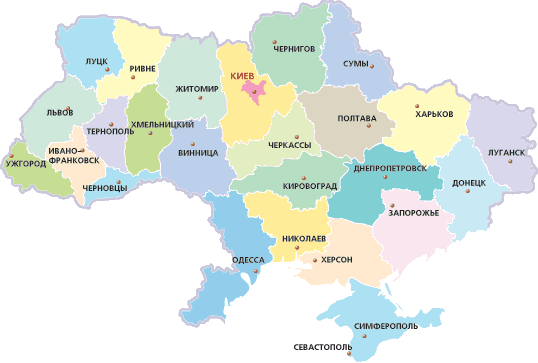
Le nuove autorità di Kiev hanno firmato il capitolato “politico” del patto di Associazione economica con l’Unione europea, causa prima del moto di protesta che ha generato l’“EuroMaidan” e, per reazione, la conseguente annessione da parte di Mosca della Crimea (regione russa, “regalata” all’Ucraina da Krusciov nel 1954, a suggello dei 3 secoli di amicizia tra i due popoli slavi orientali).
Ufficialmente il Cremlino si opponeva a tale accordo, giustificandosi con future possibili difficoltà commerciali tra le due repubbliche ex sovietiche. In realtà il problema era di altro genere: avvicinandosi così tanto all’Ue, Kiev avrebbe fatto saltare la nascita di una specie di “mini-Urss economica” voluta da Putin entro il 2015.
Alla vigilia della firma di Bruxelles l’Ucraina ha rinunciato alla presidenza di turno della Csi, la comunità sorta dalle ceneri dell’Urss, ed anzi, come la Georgia dopo la guerra con Mosca nell’agosto 2008, ha scelto di ritirare la sua adesione all’organizzazione.
L’obiettivo di Kiev, è inutile nasconderlo, è quello di una piena entrata come membro effettivo nell’Unione europea. Nel 2007 l’Ucraina faceva fatica a comprendere perché Bruxelles avesse accettato Bulgaria e Romania, Paesi di simili complessità economica ed ambientale, ma strategicamente meno importanti soprattutto dal punto di vista energetico.
Ed a questo punto, dopo quello che è avvenuto in Crimea, altro scenario non è ipotizzabile. Serviranno pertanto marce forzate ed imponenti investimenti europei ed americani. L’aspetto politico è il meno preoccupante: a parte le baltiche, l’Ucraina è l’unica repubblica ex sovietica dove veramente ha attecchito la democrazia. Difficilissimo è invece quello economico-finanziario.
Stando agli ultimi calcoli è necessario una specie di “piano Marshall”, circa 70-80 miliardi di euro, nel medio termine per ammodernare il tessuto industriale ucraino, troppo vecchio per concorrere in Ue e troppo dipendente dalla Russia. Da 3 a 7 miliardi sono solo da destinare ai gasdotti costruiti in epoca sovietica.
Tutta questa pioggia di soldi dovranno essere investiti con lo scopo di portare l’Ucraina al livello della Polonia odierna.
Ed in ultimo. L’attuale partita geostrategica costringerà i membri dell’Ue a muoversi una volta tanto insieme. A Kiev, forse, è anche nata una politica estera comune.
Gda
WASHINGTON – The U.S. Department of the Treasury’s Office of Foreign Assets Control (OFAC) today designated sixteen Russian government officials, members of the Russian leadership’s inner circle, including a Russian bank pursuant to Executive Order (E.O.) 13661, which was signed by President Obama on March 16, 2014. E.O. 13661 authorizes sanctions on, among others, officials of the Russian Government and any individual or entity that is owned or controlled by, that has acted for or on behalf of, or that has provided material or other support to, a senior Russian government official. 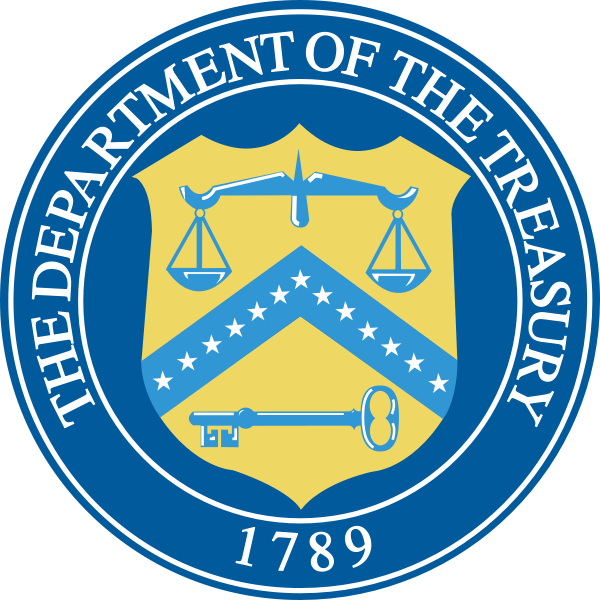
The sixteen individuals being sanctioned as Russian government officials are: Viktor Ozerov, Vladimir Dzhabarov, Evgeni Bushmin, Nikolai Ryzhkov, Sergei Zheleznyak, Sergei Mironov, Aleksandr Totoonov, Oleg Panteleev, Sergey Naryshkin, Victor Ivanov, Igor Sergun, Sergei Ivanov, Alexei Gromov, Andrei Fursenko, Vladimir Yakunin, and Vladimir Kozhin
Those being designated for acting for or on behalf of or materially assisting, sponsoring, or providing financial, material, or technological support for, or goods or services to or in support of, a senior official of the Government of the Russian Federation are: Gennady Timchenko, Arkady Rotenberg, Boris Rotenberg, Yuri Kovalchuk and Bank Rossiya. In addition to being designated for providing material support to Russian government officials, Bank Rossiya is also being designated for being controlled by designated inner circle member Kovalchuk.
“With its currency near an all-time low, its stock market down twenty percent this year and a marked rise in interest rates, Russia has already started to bear the economic costs of its unlawful effort to undermine Ukraine’s security, stability, and sovereignty,” said Under Secretary for Terrorism and Financial Intelligence David S. Cohen. “As President Obama has made clear, we will continue to impose costs in direct response to Russia’s provocative acts, even as we have made clear there is a path to de-escalate the situation in Ukraine that respects Ukraine’s sovereignty and territorial integrity and takes account of Russia’s legitimate interests.”
Russian Government Officials and Members of the Inner Circle:
Government Officials
The following sixteen individuals are being designated because they are officials of the Russian government. Although not the basis for the designation, several are also very close advisors to senior Russian government officials.
Viktor Ozerov is the Chairman of the Security and Defense Committee of the Federation Council of the Russian Federation. On March 1, 2014, Ozerov supported Russian President Vladimir Putin’s appeal regarding the use of the Russian Armed Forces in Ukraine.
Vladimir Dzhabarov is the First Deputy Chairman of the International Affairs Committee of the Federation Council of the Russian Federation. On March 1, 2014, Dzhabarov supported the Putin’s appeal regarding the use of the Russian Armed Forces in Ukraine.
Evgeni Bushmin is the Deputy Speaker of the Federation Council of the Russian Federation. On March 1, 2014, Bushmin publicly supported the deployment of Russian forces in Ukraine.
Nikolai Ryzhkov is a Senator in the Russian Upper House of Parliament (Federation Council). Ryzhkov publicly supported the deployment of Russian forces in Ukraine.
Sergei Zheleznyak is the Deputy Speaker of the State Duma of the Russian Federation.
Sergei Mironov is a Member of the Council of the State Duma, a Member of the State Duma Committee on Housing Policy and Housing and Communal Services, and Leader of the Fair Russia Faction in the Duma of the Russian Federation.
Aleksandr Totoonov is a Member of the Committee on Culture, Science, and Information, Federation Council of the Russian Federation. On March 1, 2014, Totoonov publicly supported the deployment of Russian forces in Ukraine.
Oleg Panteleev is the First Deputy Chairman of the Committee on Parliamentary Issues. On March 1, 2014, Panteleev publicly supported the deployment of Russian forces in Ukraine.
Sergey Naryshkin has been the Chairman of the Government Duma of the Federal Gathering of the Russian Federation since December, 2011. Additionally, he is a member of the National Security Council of the Russian Federation and of the United Russia party.
Victor Ivanov has been director of the Federal Drug Control Service (FSKN) of the Russian Federation since May 15, 2008; he was appointed as a member of the Security Council of the Russian Federation on May 25, 2008. Ivanov has served in a number of other government positions prior to that; he was Assistant to the President of the Russian Federation from 2004 – 2008; and Deputy Chief of the Administration of the Russian Federation from 2000 – 2004. Ivanov joined the KGB in 1977 and eventually rose to become the Deputy Director of the Federal Security Service. Ivanov is a close ally of Putin and served alongside Putin as the chief of staff of the St. Petersburg Mayor’s office in 1994 when Putin was first deputy head of the city’s administration.
Igor Sergun is the head of Russia’s military intelligence service (GRU) and is Deputy Chief of the General Staff.
Sergei Ivanov is the Chief of Staff of the Presidential Executive Office.
Alexei Gromov is the First Deputy Chief of Staff of the Presidential Executive Office.
Andrei Fursenko is an aide to the President of the Russian Federation and has been in that position since May 21, 2012. Fursenko has held a number of positions in the Government of the Russian Federation since 2001, including Minister of Education and Science from 2004 – 2012. Although not being designated for being a member of the Russian leadership’s inner circle, Fursenko first met Putin in 1993 and they remain closely associated.
Vladimir Yakunin was appointed as chairman of the board of the Russian state-owned company Russian Railways on June 15, 2005; he has remained as head of the company ever since. Yakunin is being designated because of his official position in the Russian government, but he is also a close confidant of Putin. Yakunin regularly consults with Putin on issues regarding the Russian Railways company. In addition, Yakunin accompanies Putin on many domestic and international visits. Yakunin met Putin while both were working in St. Petersburg. Yakunin decided to create a business center in the city and contacted Putin for his support. In addition, Yakunin became a member of the board of the Baltic Maritime Steamship Company on Putin’s instructions. Yakunin and Putin were also neighbors in the elite dacha community on the shore of Lake Komsomolsk and they served as cofounders of the Ozero Dacha Cooperative in November 1996.
Vladimir Kozhin was appointed the Head of Administration under the President of the Russian Federation by Putin on January 21, 2000. He has served continuously in that position until the present time. Kohzin is responsible for overseeing a staff of 60,000, over a hundred enterprises and institutions including the Kremlin and several other government buildings, and over four thousand vehicles. Kohzin’s positions have been variously referred to as Head of Administration, Head of the Presidential Affairs Office, Head of the Presidential Business Management Directorate of the Russian Federation, and head of the Presidential Property Management Directorate.
Members of the Inner Circle
The following individuals are being designated because each is controlled by, has acted for or on behalf of, or has provided material or other support to, a senior Russian government official.
Gennady Timchenko is one of the founders of Gunvor, one of the world’s largest independent commodity trading companies involved in the oil and energy markets. Timchenko’s activities in the energy sector have been directly linked to Putin. Putin has investments in Gunvor and may have access to Gunvor funds.
Arkady Rotenberg and Boris Rotenberg have provided support to Putin’s pet projects by receiving and executing high price contracts for the Sochi Olympic Games and state-controlled Gazprom. They have made billions of dollars in contracts for Gazprom and the Sochi Winter Olympics awarded to them by Putin. Both brothers have amassed enormous amounts of wealth during the years of Putin’s rule in Russia. The Rotenberg brothers received approximately $7 billion in contracts for the Sochi Olympic Games and their personal wealth has increased by $2.5 billion in the last two years alone.
Yuri Kovalchuk is the largest single shareholder of Bank Rossiya and is also the personal banker for senior officials of the Russian Federation including Putin. Kovalchuk is a close advisor to President Putin and has been referred to as one of his “cashiers.”
The following entity is being designated because it is controlled by, has acted for or on behalf of, or has provided material or other support to, senior Russian government officials.
Bank Rossiya (ОАО АБ РОССИЯ) is the personal bank for senior officials of the Russian Federation. Bank Rossiya’s shareholders include members of Putin’s inner circle associated with the Ozero Dacha Cooperative, a housing community in which they live. Bank Rossiya is also controlled by Kovalchuk, designated today. Bank Rossiya is ranked as the 17th largest bank in Russia with assets of approximately $10 billion, and it maintains numerous correspondent relationships with banks in the United States, Europe, and elsewhere. The bank reports providing a wide range of retail and corporate services, many of which relate to the oil, gas, and energy sectors.
As a result of Treasury’s action, any assets of the persons designated today that are within U.S. jurisdiction must be frozen. Additionally, transactions by U.S. persons or within the United States involving the individuals and entity designated today are generally prohibited.
Identifying Information
Name: Viktor Alekseevich Ozerov
DOB: January 5, 1958
POB: Abakan, Khakassia, Russia
Title: Chairman of the Security and Defense Committee of the Federation Council of the Russian Federation
Name: Vladimir Michailovich Dzhabarov
AKA: Vladimir Dzhabarov
DOB: September 29, 1952
Title: First Deputy Chairman of the International Affairs Committee of the Federation Council of the Russian Federation
Name: Evgeni Viktorovich Bushmin
AKA: Evgeny Bushmin
AKA: Yevgeny Bushmin
DOB: October 10, 1958
POB: Lopatino, Sergachiisky Region, Russia
Title: Deputy Speaker of the Federation Council of the Russian Federation
Name: Nikolai Ivanovich Ryzhkov
AKA: Nikolai Ryzhkov
DOB: September 28, 1929
POB: Duleevka, Donetsk Region, Ukraine
Title: Member of the Committee for Federal Issues, Regional Politics and the North of the Federation Council of the Russian Federation
Title: Senator in the Russian Upper House of Parliament
Name: Sergei Vladimirovich Zheleznyak
AKA: Sergei Zheleznyak
AKA: Sergey Zheleznyak
DOB: July 30, 1970
POB: Saint Petersburg, Russia
Title: Deputy Speaker of the State Duma of the Russian Federation
Name: Sergei Mikhailovich Mironov
AKA: Sergei Mironov
DOB: February 14, 1953
POB: Pushkin, Saint Petersburg, Russia
Title: Member of the Council of the State Duma, Member of the State Duma Committee on Housing Policy and Housing and Communal Services, and Leader of the Fair Russia Faction in the Duma of the Russian Federation
Name: Aleksandr Borisovich Totoonov
AKA: Alexander B. Totoonov
AKA: Alexander Totoonov
DOB: March 3, 1957
POB: Ordzhonikidze, North Ossetia, Russia
POB: Vladikavkaz, North Ossetia, Russia
Title: Member of the Committee on Culture, Science, and Information, Federation Council of the Russian Federation
Name: Oleg Evgenevich Panteleev
AKA: Oleg Panteleev
DOB: July 21, 1952
POB: Zhitnikovskoe, Kurgan Region, Russia
Title: First Deputy Chairman of the Committee on Parliamentary Issues
Name: Sergey Yevgenyevich Naryshkin
AKA: Sergei Naryshkin
DOB: October 27, 1954
POB: Saint Petersburg, Russia
Name: Victor Petrovich Ivanov
AKA: Viktor Ivanov
DOB: May 12, 1950
alt. DOB: 1952
POB: Novgorod, Russia
Name: Igor Dmitrievich Sergun
DOB: March 28, 1957
Title: Lieutenant General; Chief of the Main Directorate of the General Staff (GRU), Deputy
Chief of the General Staff
Name: Sergei Ivanov
AKA: Sergey Ivanov
DOB: January 31, 1953
POB: Saint Petersburg, Russia
Title: Chief of Staff of the Presidential Executive Office
Name: Alexei Gromov
DOB: 1960
POB: Zagorsk (Sergiev, Posad), Moscow Region, Russia
Title: First Deputy Chief of Staff of the Presidential Executive Office
Title: Presidential Administration Deputy Chief of Staff
Title: First Deputy Presidential Chief of Staff
Name: Andrei Alexandrovich Fursenko
AKA: Andrei Fursenko
AKA: Andrey Fursenko
DOB: July 17, 1949
POB: Saint Petersburg, Russia
Title: Aide to the President of the Russian Federation
Name: Vladimir Ivanovich Yakunin
DOB: June 30, 1948
POB: Zakharovo Village, Gus-Khrustalnyy Rayon, Vladimir Oblast, Russia
alt. POB: Melenki, Vladimir Oblast, Russia
Name: Vladimir Igorevich Kozhin
DOB: February 28, 1959
POB: Troitsk, Chelyabinsk Oblast, Russia
Name: Gennady Timchenko
AKA: Gennadiy Nikolayevich Timchenko
AKA: Gennady Nikolayevich Timchenko
AKA: Guennadi Timtchenko
Address: Geneva, Switzerland
DOB: November 9, 1952
POB: Leninakan, Armenia
alt. POB: Gyumri, Armenia
Nationality: Finland, Russia, Armenia
Name: Arkady Rotenberg
DOB: December 15, 1951
POB: Saint Petersburg, Russia
Name: Boris Rotenberg
DOB: January 3, 1957
POB: Saint Petersburg Russia
Name: Yuri Valentinovich Kovalchuk
AKA: Yury Valentinovich Kovalchuk
DOB: July 25, 1951
POB: Saint Petersburg, Russia
Name: Bank Rossiya
FKA: Aktsionerny BANK Russian Federation
Address: 2 Liter A Pl. Rastrelli, Saint Petersbrug, 191124, Russia
E-mail: bank@abr.ru
Web Site: www.abr.ru
SWIFT/BIC: ROSY RU 2P
Crimea, a new Republic of Russia.
18 Mar 2014On March 16, a referendum was held on the territory of the Autonomous Republic of Crimea and the separate municipality of Sevastopol, in which 96.8% of voters opted to join the Russian Federation as its subjects, with a turnout of 83.1%. 
On March 18, Moscow proclaimed the annexation of Crimea (both the Republic and Sevastopol) to the Russian Federation as two of its entities. This decision has not been recognized by Kyiv and the International community.
Crimea is dependent on supplies from Ukraine of water, for agricultural and industrial products (75-80%), and electricity (80-85%). Supplies of natural gas are probably only important for certain industrial plants; Crimea extracts a significant amount of this material itself, and is able to meet the vast majority of the needs from its own territory (currently over 80%).
О гражданской войне в Украине.
23 Jan 2014Россияне невольно запутались в терминах. Или их запутали. Поясню.
Когда Виталий Кличко или кто-то из украинской оппозиции говорит об угрозе гражданской войны, они имеют в виду не совсем то, что слышится в России. Или совсем не то. 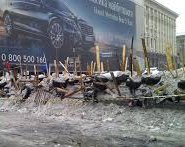
В Украине не будет гражданской войны — то есть войны одних простых граждан с другими простыми гражданами. Этот вариант можно не рассматривать, украинцы, западные и восточные, северные и южные, конечно, немного разные, но они не ненавидят друг друга. И у них одна родина, что бы, например, за них Лимонов ни говорил.
А вот другая гражданская война — война отчаянных граждан с ненавистной и презираемой, потерявшей самоконтроль властью бабла и беспредела — вполне может начаться.
На условном востоке менее массовая, на западе — более. Но украинцы природные бунтари и партизаны, в Донецке и Харькове тоже достаточно свободолюбивых и смелых людей, и с таким народом я бы никому не рекомендовал шутить. А тем паче стрелять в него. Прилетит обратно.
Это будет жестоко и страшно. Всем — и гражданам, и представителям власти, и “силовикам”. Погибнут невинные. В том числе люди в форме, которых трусливые бандиты подставят под удар. Но, к несчастью и ужасу, это может случиться.
Если Янукович со своей криминальной “семьей” не поймет, что всю Украину нельзя “отжать”, всех украинцев нельзя “опустить”, “закошмарить” — и не найдет в себя разума остановится. Или Януковича не остановят. Те из власти и крупного бизнеса, кому еще хочется спокойно пожить. Да просто пожить.
А тот вариант, что в украинские дела хоть каким-то насильственным образом втянут Россию и русских людей, я даже рассматривать не хочу. Это будет преступлением против обоих народов, которое не простится и не забудется никогда.
Blog – Ayder Muzhdabaev – Айдер Муждабаев – Facebook –
ЕС с Россией вместе.
1 Jan 2014«В России радуются геополитической победе над Европой. Малая Русь спасена от европейского разврата и эксплуатации. О боже, ведь Украина еще до подписания соглашения об ассоциации с ЕС должна была внести изменения в ряд законов и даже Конституцию страны, но снова мешки с баблом задушили демократические права, на соблюдении которых настаивал Европейский союз!…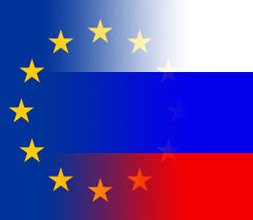
Да, Украина остается частью постсоветского мира, которым с помощью кнута и пряника хочет править Россия. Но все же это временная победа. Украина, как и другие государства, которые образовались после развала Советского Союза, в любом случае будет стремиться к тесному сотрудничеству с Европой, несмотря на то что сегодня их лидеры неприкрыто льстят Кремлю. Более того, курс на сближение с Евросоюзом ждет и саму Россию… » ***
Статья – Иржи Юст – Московский Комсомолец № 26417 от 23 декабря 2013 г. Jiří Just Moskovskij Komsomolets.
Презентация книги «Развод по-советски». Русское издание
Состоится
Четверг – 19-го декабря в 11.30
при новой резиденции щвейцарского посла
125009 г. МОСКВА, МАЛЫЙ КИСЛОВСКИЙ ПЕР., Д.5А/8, СТР. 1
Читая мою смешанную российско-украинскую фейсбучную ленту, понимаю, что мы с украинцами живем не столько в разных мирах, сколько в разное время.
На Украине обсуждают гражданские протесты 2013 года с требованиями отставки правительства, президента, досрочных выборов и восстановления парламентской республики как системы власти.
В России обсуждают даже не «оттепель», а кино про «оттепель» полувековой давности.
Поэтому неудивительно, что наше общество (про власть и не говорю) раздражается, не понимая украинцев, вкладывая свой смысл в их слова и действия, — какого они сами не имеют в виду.
Это проще почувствовать, чем объяснить, и долго раскладывать по пунктам. Если примитивно и совсем коротко, то российское общество — как персонаж фантастического фильма, прилетевший на машине времени из недавнего прошлого: почти не отличается от окружающих внешне, но не может до конца врубиться в происходящее.
Простите, если вдруг кто-то обиделся, но я сам не украинец, россиянин. Ощутил это на себе и наблюдаю в беседах с соотечественниками.
Надо признать, что власти удалось нас подвесить во времени. И даже чуть отмотать.
Blog – Ayder Muzhdabaev – Айдер Муждабаев – Facebook –
Eastern Partnership, as one of the priorities of the Lithuanian Presidency of the Council of the EU, is a natural choice, determined by the Lithuanian and the EU interest to have safe, stable, economically strong and pro-European Eastern neighbours. Our goal is to have pro-active and efficient Eastern Partnership policy that would bring tangible results for these countries and their people. This could be achieved through the joint efforts of the EU institutions, EU Member States and Eastern Partners themselves. 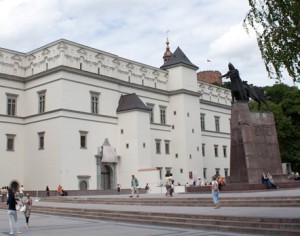
Through the Eastern Partnership, the EU strengthens its bilateral and multilateral cooperation with the six Eastern European partners: Armenia, Azerbaijan, Belarus, Georgia, Moldova and Ukraine, supports reform processes of these countries, and seeks to bring them closer to the EU.
Main results
Over the first four years of its implementation, Eastern Partnership initiative has brought a number of tangible results:
- Association Agreements, including Deep and Comprehensive Free Trade Areas, as their integral parts, have been negotiated with Ukraine, the Republic of Moldova, Georgia and Armenia; good progress has also been achieved in respective negotiations with Azerbaijan;
- considerable progress has been made in the area of visa facilitation and liberalization: 5 out of 6 partners already have or will soon have Visa Facilitation Agreements; 3 of them managed to advance even more – they now have Visa Liberalization Actions Plans, prepared specifically to them, full and effective implementation of which will bring these countries straight to the visa free travels with the EU;
- the multilateral cooperation dimension has been established and further strengthened: it now includes senior officials and experts working in a number of different areas, from agriculture and environment to trade, migration and CSDP;
- sectorial cooperation has also been enhanced, with the first Eastern partnership ministerial meetings in the fields of Justice and Home Affairs, and Transport, held in October 2013, in Luxembourg;
- cooperation between societies at large has been started and such formats as Civil Society Forum, Conference of the Regional and Local Authorities (CORLEAP), Business Forum and Youth Forum are now meeting on a regular basis, thus contributing to the monitoring of the implementation of the Eastern Partnership, but also to the policy shaping.
The third Eastern Partnership Summit in Vilnius
The third Eastern Partnership Summit in Vilnius will be held on the 28-29 November, 2013. The leaders and other high level representatives of the EU institutions, 28 EU Member States and the 6 Eastern European Partner States are expected to take part in the EaP Vilnius Summit. The event will be hosted by the President of the Republic of Lithuania Dalia Grybauskaitė and chaired by the President of the European Council Herman Van Rompuy.
Eastern Partnership Summits are held every two years (the first two Summits took place in the Czech Republic (Prague), 7 May, 2009, and in Poland (Warsaw), 29-30 September, 2011). During these meetings, the implementation and the results of the Eastern Partnership are discussed, the objectives for the next two years are determined and the prospects for the future are drawn.
Source: official site of the Summit
* * *
Joint statement by President of the European Council Herman Van Rompuy and President of the European Commission José Manuel Barroso on Ukraine
Concerning the Ukrainian decision to suspend temporarily the preparations for signing the Association Agreement and Deep and Comprehensive Free Trade Area (DCFTA), the European Union’s position remains clear. The offer of signing an unprecedented Association Agreement and a DCFTA is still on the table. This requires the necessary political will by the Ukrainian leadership, determined action and tangible progress on the conditions set out in December 2012.
Important progress has already been achieved by Ukraine. We are convinced that signing the Association Agreement and a DCFTA, the most ambitious agreement the European Union has ever offered, provides the best possible support for Ukraine’s economic situation, reform course and modernisation in view of building a prosperous and stable future for all Ukrainians. The EU stands ready to be more open and more supportive to those who are willing to engage in reforms and modernisation.
While being aware of the external pressure that Ukraine is experiencing, we believe that short term considerations should not override the long term benefits that this partnership would bring. However the European Union will not force Ukraine, or any other partner, to choose between the European Union or any other regional entity. It is up to Ukraine to freely decide what kind of engagement they seek with the European Union. Ukrainian citizens have again shown these last days that they fully understand and embrace the historic nature of the European association.
We therefore strongly disapprove of the Russian position and actions in this respect. The Association Agreement and a DCFTA are opportunities to accompany our common neighbours towards modern, prosperous and rule-based democracies. Stronger relations with the European Union do not come at the expense of relations between our Eastern partners and their other neighbours, such as Russia. The Eastern Partnership is conceived as a win-win where we all stand to gain. The European Union continues to stand ready to clarify to the Russian Federation the mutual beneficial impact of increased trade and exchanges with our neighbours, whilst fully respecting the sovereignty and independence of our Eastern Partners and the bilateral nature of Association Agreement and DCFTAs.
The European Union looks forward to the Eastern Partnership Summit in Vilnius this week. It will be an important moment to take stock of the situation and take forward the relations with our Eastern partners.
Welcome
We are a group of long experienced European journalists and intellectuals interested in international politics and culture. We would like to exchange our opinion on new Europe and Russia.
Categories
- Breaking News (11)
- CIS (129)
- Climate (2)
- Energy&Economy (115)
- EU Eastern Dimension (85)
- Euro 2012 – Sochi 2014 – World Cup 2018, Sport (43)
- Euro-Integration (135)
- History Culture (198)
- International Policy (261)
- Military (74)
- Interviews (18)
- Italy – Italia – Suisse (47)
- Odd Enough (10)
- Poland and Baltic States (126)
- Religion (31)
- Russia (421)
- Survey (4)
- Turning points (4)
- Ukraine (176)
- Российские страницы (113)
Archives
- November 2020
- October 2020
- September 2020
- August 2020
- July 2020
- May 2020
- April 2020
- March 2020
- January 2020
- December 2019
- November 2019
- October 2019
- September 2019
- August 2019
- July 2019
- June 2019
- May 2019
- April 2019
- March 2019
- February 2019
- December 2018
- November 2018
- October 2018
- September 2018
- August 2018
- July 2018
- June 2018
- May 2018
- April 2018
- March 2018
- February 2018
- January 2018
- December 2017
- November 2017
- October 2017
- September 2017
- August 2017
- July 2017
- May 2017
- March 2017
- January 2017
- December 2016
- November 2016
- October 2016
- September 2016
- July 2016
- June 2016
- May 2016
- April 2016
- February 2016
- January 2016
- November 2015
- October 2015
- September 2015
- June 2015
- April 2015
- March 2015
- February 2015
- January 2015
- December 2014
- November 2014
- October 2014
- September 2014
- August 2014
- July 2014
- June 2014
- May 2014
- April 2014
- March 2014
- February 2014
- January 2014
- December 2013
- November 2013
- October 2013
- September 2013
- August 2013
- July 2013
- June 2013
- May 2013
- April 2013
- March 2013
- February 2013
- January 2013
- December 2012
- November 2012
- October 2012
- September 2012
- August 2012
- July 2012
- June 2012
- May 2012
- April 2012
- March 2012
- February 2012
- January 2012
- December 2011
- November 2011
- October 2011
- September 2011
- August 2011
- July 2011
- June 2011
- May 2011
- April 2011
- March 2011
- February 2011
- January 2011
- December 2010
- November 2010
- October 2010
- September 2010
- August 2010
- July 2010
- June 2010
- May 2010
- April 2010
- March 2010
- February 2010
- January 2010
- December 2009
- November 2009
- October 2009
- September 2009
- August 2009
Our books





